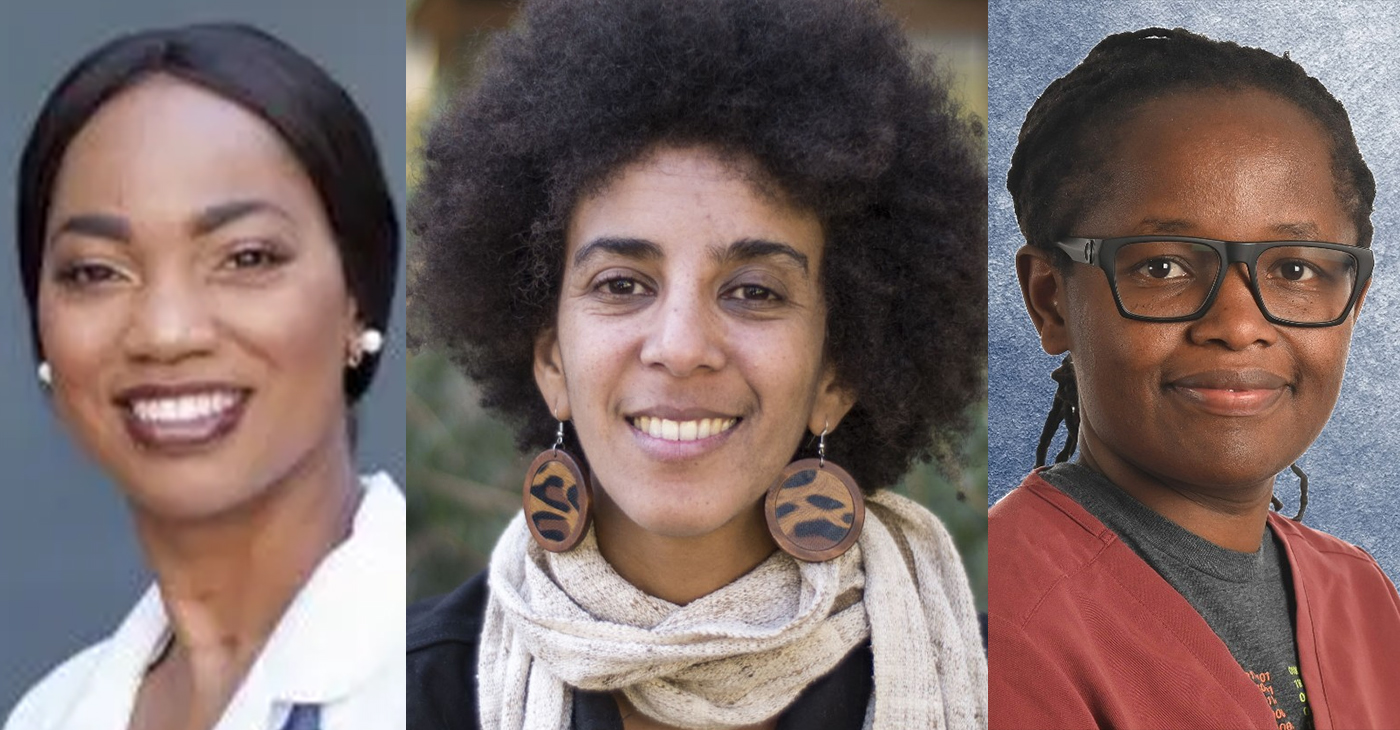Business
Equity Report Reveals Statistics on Black Women Compared to Other Races
Black women in the Golden State trail behind their counterparts from other ethnic groups in median wealth and a lower percentage of them have obtained higher education degrees. Black mothers and their babies have mortality rates that surpass women from other racial and ethnic backgrounds.

By McKenzie Jackson
California Black Media
Black women in the Golden State trail behind their counterparts from other ethnic groups in median wealth and a lower percentage of them have obtained higher education degrees. Black mothers and their babies have mortality rates that surpass women from other racial and ethnic backgrounds.
Kellie Todd Griffin, president and CEO of California Black Women’s Collective Empowerment Institute (CBWCEI) said the state of Black women in California is troubling.
“There is so much work to do,” she explained. “There is a gap with Black women. Without immediate interventions from a policy and practice transformation standpoint, we’re not going to be able to change the trajectory.”
Griffin’s remarks came a day after the Center for the Advancement of Women at Mount Saint Mary’s University released its 12th annual “Report on the Status of Women and Girls in California” on March 22.
The 40-page report, with the tagline “Advancing Equity: Leading with Meaning and Purpose,” is the Los Angeles university’s assessment of the state of women in California based on a number of social and economic indicators.
It is “what women need in order to attain agency for themselves, add meaning to their lives, and contribute fully to their families, communities, and businesses,” wrote Mount Saint Mary’s University President Ann McElaney-Johnson in the document’s opening pages.
The report highlights issues affecting women and girls in California post-COVID-19 pandemic. The trends documented pertain to women’s education, economic security, health, household labor, and wage and wealth divisions.
The paper’s authors and staff at Mount Saint Mary’s are advocates who push for changes in legislation to help women and girls in the state.
Robin L. Owens, interim director of the center and associate professor of Religious Studies at Mount Saint Mary’s, said all of the study’s findings need to be addressed.
“My personal opinion, wealth impacts everything, so that is the one that struck me the most,” she emphasized. “The differences in the wealth gap between men and women, but also between African American women and other races. That was striking.”
The wealth gap among women is vast, according to the study. For every $100 owned by a white woman, Latinas own $10, and Black women own $9.
Twenty-four percent of households led by single Black women and 25% of Latina households are more likely to live in poverty than single white (14%) and single Asian (15%) women households.
In corporate leadership, 5% of the women in management positions and CEO chairs are African American. In comparison, 46% of women in management positions are white and 86% of women CEOs are white.
Black women hold 4% of the bachelor’s degrees obtained by California women, while white women have 47%. Among women holding graduate and professional degrees, 52% are white women, whereas African American women make up only 5%.
There is a connection, Griffin stated, between Black women’s trailing in education and wealth figures.
“We’re the smallest population amongst the groups that were assessed, however we shouldn’t be 4% of the bachelor’s degree holders,” she noted. “It’s disheartening. How do you get into corporate leadership if a majority of good-paying jobs require a degree? We can’t get in the door to be able to accelerate up.”
Black women are more than four times more likely to die from pregnancy-related causes then white women, and Black babies are more than twice as likely to die within one year than white babies.
The maternal death rates of African American women and their babies are comparable to numbers from decades ago despite funds and efforts put into improving that rate for all women, Griffin said.
“That is not an improvement,” she said.
CBWCEI is focused on using the numbers from the report and other statistics they have gathered to shine a light on the challenges Black women in the state have and to uplift their voices.
The group advocated for and received state funds to create the California Black Women’s Think Tank at Cal State Dominguez Hills, which focuses solely on Black women and girls through research and leadership development. The nonprofit organization is also conducting other African American women-geared initiatives.
“We are focused on Black women, Black girls, Black joy, Black advancement,” Griffin stated. “We understand if we invest in Black women, then we invest in Black communities. We are investing in Black California.”
Owens hopes readers of the report take actions like the CBWCEI.
“I hope people read the report and really give some thoughtful consideration to how they can add to the advancement of women in general and African American women in particular,” she said.
“Even if it is in a small way. Sometimes we tend to think we have to fix the whole problem. If we could just find out in our own corner of the world, how we could make a small increase in helping African American women and women in general that would make a difference.”
Activism
Newsom Fights Back as AmeriCorps Shutdown Threatens Vital Services in Black Communities
“When wildfires devastated L.A. earlier this year, it was AmeriCorps members out there helping families recover,” Gov. Newsom said when he announced the lawsuit on April 17. “And now the federal government wants to pull the plug? We’re not having it.”

By Bo Tefu
California Black Media
Gov. Gavin Newsom is suing the federal government over its decision to dismantle AmeriCorps, a move that puts essential frontline services in Black and Brown communities across California at risk, the Governor’s office said.
From tutoring students and mentoring foster youth to disaster recovery and community rebuilding, AmeriCorps has been a backbone of support for many communities across California.
“When wildfires devastated L.A. earlier this year, it was AmeriCorps members out there helping families recover,” Newsom said when he announced the lawsuit on April 17. “And now the federal government wants to pull the plug? We’re not having it.”
The Department of Government Efficiency (DOGE) under the Trump administration is behind the rollback, which Newsom calls “a middle finger to volunteers.”
Meanwhile, Newsom’s office announced that the state is expanding the California Service Corps, the nation’s largest state-run service program.
AmeriCorps has provided pathways for thousands of young people to gain job experience, give back, and uplift underserved neighborhoods. Last year alone, over 6,000 members across the state logged 4.4 million hours, tutoring more than 73,000 students, planting trees, supporting foster youth, and helping fire-impacted families.
The California Service Corps includes four paid branches: the #CaliforniansForAll College Corps, Youth Service Corps, California Climate Action Corps, and AmeriCorps California. Together, they’re larger than the Peace Corps and are working on everything from academic recovery to climate justice.
“DOGE’s actions aren’t about making government work better. They are about making communities weaker,” said GO-Serve Director Josh Fryday.
“These actions will dismantle vital lifelines in communities across California. AmeriCorps members are out in the field teaching children to read, supporting seniors and helping families recover after disasters. AmeriCorps is not bureaucracy; it’s boots on the ground,” he said.
Activism
AI Is Reshaping Black Healthcare: Promise, Peril, and the Push for Improved Results in California
Black Californians experience some of the worst health outcomes in the state due to systemic inequities, limited healthcare access, and exclusion from medical research. 16.7% of Black adults report fair or poor health, versus 11.5% of Whites. Black adults have the highest death rates from prostate, breast, colorectal, and lung cancer. Statewide, diabetes affects 13.6% of Black adults versus 9.1% of Whites, and 27% of Black adults over 65 have heart disease, compared to 22% of Whites. Life expectancy for Black Californians is about five years shorter than the state average.

Joe W. Bowers Jr.
California Black Media
Artificial intelligence (AI) is changing how Californians receive medical care – diagnosing diseases, predicting patient needs, streamlining treatments, and even generating medical notes for doctors.
While AI holds promise, it also poses risks, particularly for Black patients. It can provide faster diagnoses and expand access to care, but it may also misdiagnose conditions, delay treatment, or overlook patient’s critical needs. AI’s impact on Black patients depends on how biases in medical data and algorithms are addressed in its development.
“As we progress toward a society with increased use of AI technology, it is critical that the biases and stereotypes that Black Americans have faced are not perpetuated in our future innovations,” said Dr. Akilah Weber Pierson (D – San Diego), a physician and state senator spearheading legislative efforts to address AI bias in healthcare.
Why AI Matters for Black Californians
Black Californians experience some of the worst health outcomes in the state due to systemic inequities, limited healthcare access, and exclusion from medical research. 16.7% of Black adults report fair or poor health, versus 11.5% of Whites. Black adults have the highest death rates from prostate, breast, colorectal, and lung cancer. Statewide, diabetes affects 13.6% of Black adults versus 9.1% of Whites, and 27% of Black adults over 65 have heart disease, compared to 22% of Whites. Life expectancy for Black Californians is about five years shorter than the state average.
Benefits and Risks of AI in Healthcare
AI processes vast amounts of medical data using computer algorithms designed to identify patient health patterns, helping doctors to diagnose diseases, recommend treatment, and increase patient care efficiency. By analyzing scans, lab results, and patient history, AI can detect diseases
earlier, giving it the potential to improve care for Black patients, who face higher risks of prostate cancer, diabetes, heart disease and hypertension.
Dr. Judy Gichoya, an Interventional radiologist at the Emory University Winship Cancer Institute and AI researcher at Emory’s Healthcare AI Innovation and Translational Informatics (HITI) Lab, sees AI as a tool with great potential but cautions that its effectiveness depends on the diversity of the data it is trained on. She says, “Without diverse datasets, AI could overlook critical signs of diseases, especially in underrepresented populations like Black patients.”
Dr. Timnit Gebru, a computer scientist and AI ethics expert, is the founder and Executive Director of DAIR (Distributed AI Research Institute) in Oakland. She has extensively studied bias in AI systems and their impact on marginalized groups.
Gebru acknowledges that AI has the potential to improve healthcare by enhancing efficiency and expanding access to medical resources. But, like Gichoya she strongly stresses that for AI to be effective and equitable it needs to be subject to rigorous oversight.
AI is already helping doctors personalize cancer treatment by identifying biomarkers and genetic mutations. UCSF and Stanford Health use AI to analyze tumor DNA to match patients with the most effective chemotherapy or immunotherapy.
In diabetes care, AI predicts blood sugar fluctuations, helping doctors adjust treatment. It helps radiologists in early disease detection and identifies sepsis sooner, reducing hospital deaths. In cardiology, AI detects early signs of heart disease, spotting plaque buildup or abnormal heart rhythms before symptoms appear. It also helps predict strokes by analyzing brain scans to determine risk and guide intervention.
Kaiser Permanente uses AI scribes to reduce paperwork and improve patient interactions. Covered California has partnered with Google
Cloud to use AI to streamline document verification and eligibility decisions.
Despite these advancements, AI systems trained on biased medical data can perpetuate inequities for Black patients.
Gebru explains, “If AI learns from historically discriminatory medical decisions—such as undertreating Black patients—it will scale those biases.”
A notable example is in dermatology, where AI frequently misdiagnoses conditions in Black patients because most training datasets are based on lighter-skinned individuals. “Melanoma looks very different on darker skin,” Gebru notes. “It’s not just darker—it often appears differently, like under toenails, a pattern AI trained mostly on lighter skin won’t detect.”
Another risk of AI in healthcare is automation bias, where healthcare providers over-rely on AI, even when it contradicts medical expertise. “Doctors who would have prescribed medications accurately without AI sometimes make mistakes while using automated tools because they over-trust these systems,” Gebru adds.
AI-driven health insurance claim denials are a growing concern. UnitedHealthcare faces a class-action lawsuit for allegedly using an unregulated AI algorithm to deny rehabilitation coverage to elderly and disabled patients.
Beyond bias, AI also poses an environmental threat. AI systems require enormous amounts of energy for computing and massive amounts of water to cool data centers, which exacerbates climate change, an issue that already disproportionately impacts Black communities.
Trump Administration and DEI Impact
The Trump administration’s efforts to dismantle Diversity, Equity, and Inclusion (DEI) threatens funding for AI bias research in healthcare.
Less federal support could stall progress in making AI systems fairer and more accurate, increasing discrimination risks for Black patients.
California’s Legislative and Regulatory Response
Recognizing AI’s risks in healthcare, California lawmakers and state officials are implementing regulations. Weber Pierson introduced Senate Bill (SB) 503 to ensure that AI algorithms used in healthcare are tested for racial bias before implementation.
“We’ve already seen how biased medical devices like pulse oximeters can fail Black patients,” Weber Pierson explains. “If algorithms used in patient care aren’t inclusive, they’re not going to accurately serve melanated individuals.”
At a press conference introducing SB 503, Weber Pierson stressed that AI must be held accountable. “This bill focuses on ensuring that software used as an accessory to healthcare staff delivers sound, nondiscriminatory decisions that promote equitable outcomes.”
Other legislative efforts include Senate Bill (SB) 1120, by Sen. Josh Becker (D-Menlo Park), which stops insurance companies from using AI alone to deny or delay care and Assembly Bill (AB) 3030, by Assemblymember Lisa Calderon (D-Whittier), which requires healthcare providers to inform patients when AI is used in their care.
Attorney General Rob Bonta has issued a legal advisory barring AI from unfairly denying healthcare claims, falsifying records, or restricting access to care based on medical history. Gov. Gavin Newsom’s 2023 executive order directs state agencies to assess AI’s impact and establish consumer protections, particularly in healthcare.
Actions Black Patients and Families Can Take
As AI becomes more common in healthcare, Black Californians can ensure fair treatment by asking if AI is used, seeking second opinions, and supporting groups addressing algorithmic bias.
They can:
- Ask their healthcare providers whether AI played a role in their diagnosis or treatment.
- Request second opinions if an AI-generated diagnosis seems questionable.
- Advocate for AI policies and legislation promoting fairness and accountability. · Engage with community health organizations like the California Black Health Network (CBHN) that is engaged in ensuring AI is developed in ways to improve health outcomes for Black patients.
Rhonda Smith, CBHN’s executive director, says bias in medical algorithms must be eliminated. “There should never be any race-based adjustment in delivering patient care,” she said.
CBHN supports inclusive research and legislation like SB 503 to ensure AI promotes equity.
Ensuring AI Benefits All Communities
As a legislator, Weber Pierson is pushing for stronger safeguards to ensure AI serves all patients equitably. She says, “Innovation and technology are good, but new challenges arise if we don’t move in a direction inclusive and thoughtful of all people who utilize the healthcare space.”
AI has the potential to revolutionize healthcare, but experts warn it must be developed and regulated with transparency, accountability, and fairness – ensuring it reduces rather than worsens, racial health disparities.
Activism
ESSAY: Technology and Medicine, a Primary Care Point of View
The COVID-19 pandemic, for example, restricted millions of people to their homes, which required reliance on the internet for communication and information. Personal internet searches became essential to understanding information about COVID, human physiology, symptoms, and keeping up with vaccine updates. However, this increase in independent online research resulted in people accessing more misinformation circulating on the internet. This posed a challenge for medical providers trying to treat patients according to research-based guidelines. With so much information within reach, it was difficult for providers to help their patients distinguish between legitimate evidence-based sources and opinion, speculation, and fabrication.

Dr. Adia Scrubb
Special to California Black Media Partners
Technology has enhanced communication between medical professionals and patients; improved patient care management; and eased access to care and information, benefiting both patients and medical clinicians.
However, despite the ease and many conveniences these patient care improvements have ushered in, adequate patient care still includes physician supervision, examinations, and interaction, which present challenges for keeping up with demands on the healthcare system and accurate patient education.
Technology has made more educational resources available at our fingertips, and it has created independence for those who want to know more about their bodies.
The COVID-19 pandemic, for example, restricted millions of people to their homes, which required reliance on the internet for communication and information. Personal internet searches became essential to understanding information about COVID, human physiology, symptoms, and keeping up with vaccine updates. However, this increase in independent online research resulted in people accessing more misinformation circulating on the internet. This posed a challenge for medical providers trying to treat patients according to research-based guidelines. With so much information within reach, it was difficult for providers to help their patients distinguish between legitimate evidence-based sources and opinion, speculation, and fabrication.
Nowadays, patients continuously arm themselves with medical information and challenge clinicians with the research they gather from internet sources to advocate for themselves and their care. This often leaves medical professionals with the complex task of navigating challenging discussions, pointing patients to validated and verified medical information, and following evidence-based medical guidelines for treatment.
Reviewing information before an appointment can certainly make an office visit much more productive, but it is essential to acknowledge the possible bias and limitations of internet searches. Consideration of the author, source, and date of the information may help determine its validity.
Furthermore, simply asking medical professionals for their preferred patient information resources will direct patients to safe and validated information that is in line with standards of care practices. This can help patients better understand the recommendations from their doctors and streamline their internet searches.
Access to individual online medical record information, such as blood tests, MRI reports, and office visit notes, has been a significant expansion of technology in medicine. This digitization of medical information enables and positions patients to take a leading role in managing their care. What used to be multiple sheets of paper in a large file folder is now a click away at any time. Despite these benefits, instant access can be overwhelming for both patients and medical providers, especially since patients, in many instances, can receive their test results online before the physician has had the opportunity to review them.
Patients may review the office visit notes or their lab results out of context or misinterpret information, which can lead to anxiety, confusion, and fear. Clinicians are put in a difficult position when they are not able to suddenly break away from their scheduled office visits to reassure an unscheduled patient about their results and next steps.
Medical providers have tools to assist with identifying sensitive results that need urgent review, and efforts are made to notify anxious patients as soon as possible. However, a patient can be proactive in scheduling a follow-up visit ahead of time to review results with their provider specifically. This can help patients avoid the stress of suddenly trying to get a hold of their doctor when dealing with unclear or concerning results. Normal test results often don’t require explanation, but allowing several days for your provider to work through hundreds of test results before sending messages requesting clarification will help medical professionals prioritize their responses to test results based on medical urgency.
Technological improvements such as online messaging and video/telephone appointments have made access to care much easier both for patients and clinicians. Telephone and video visits have been especially beneficial for patients who are elderly, disabled, or do not have access to transportation. However, the increase — and ease of — access has created much higher demand for physician time both during and outside of the office visit. Test results, patient messages, insurance forms, emails, and medication requests are all pouring in while providers conduct their daily scheduled appointments. Thus, very little time is left in the day for a clinician to respond to every email, fill out every form, and review every lab result when they are responsible for 1,800 or more patients.
This situation, unfortunately, creates a perceived delay in response in a culture where an instant response is expected from messaging and phone calls. But the reality is that the medical provider is constantly playing catch up to thousands of inquiries due to the around-the-clock online access patients now have.
Patients can make the most of their experience and their physician’s time by taking the time to learn their physician’s communication preferences. Despite the multiple modalities of access (telephone, email, video, in-person), a medical provider will have a preferred method of communication with their patients. Some may ask their patients to make an appointment to explain a complex topic, instead of responding to multiple messages. Others may prefer to communicate via phone call if they have to deliver bad news.
There will likely be more medical providers who prefer to communicate only through email or video appointments as remote work becomes more common. If a patient’s communication preferences align with their physician’s preferences, it will create a stronger patient-doctor relationship and foster more effective and impactful communication.
The expansion of technology in medicine has fostered better collaboration, communication, and education between patients and their medical professionals. Combining electronic resources with rapport, mutual respect, and trust for providers will help patients navigate this new landscape of healthcare.
About the Author
Dr. Adia Scrubb, MD, MPP, is a Board-Certified Family Medicine Physician currently practicing in Solano County.
-

 Activism4 weeks ago
Activism4 weeks agoOakland Post Endorses Barbara Lee
-

 Activism3 weeks ago
Activism3 weeks agoOakland Post: Week of April 2 – 8, 2025
-

 #NNPA BlackPress3 weeks ago
#NNPA BlackPress3 weeks agoTrump Profits, Black America Pays the Price
-

 Activism2 weeks ago
Activism2 weeks agoOakland Post: Week of April 9 – 15, 2025
-

 #NNPA BlackPress3 weeks ago
#NNPA BlackPress3 weeks agoHarriet Tubman Scrubbed; DEI Dismantled
-

 #NNPA BlackPress3 weeks ago
#NNPA BlackPress3 weeks agoTrump Targets a Slavery Removal from the National Museum of African-American History and Culture
-

 #NNPA BlackPress3 weeks ago
#NNPA BlackPress3 weeks agoLawmakers Greenlight Reparations Study for Descendants of Enslaved Marylanders
-

 #NNPA BlackPress3 weeks ago
#NNPA BlackPress3 weeks agoNew York Stands Firm Against Trump Administration’s Order to Abandon Diversity in Schools






















































